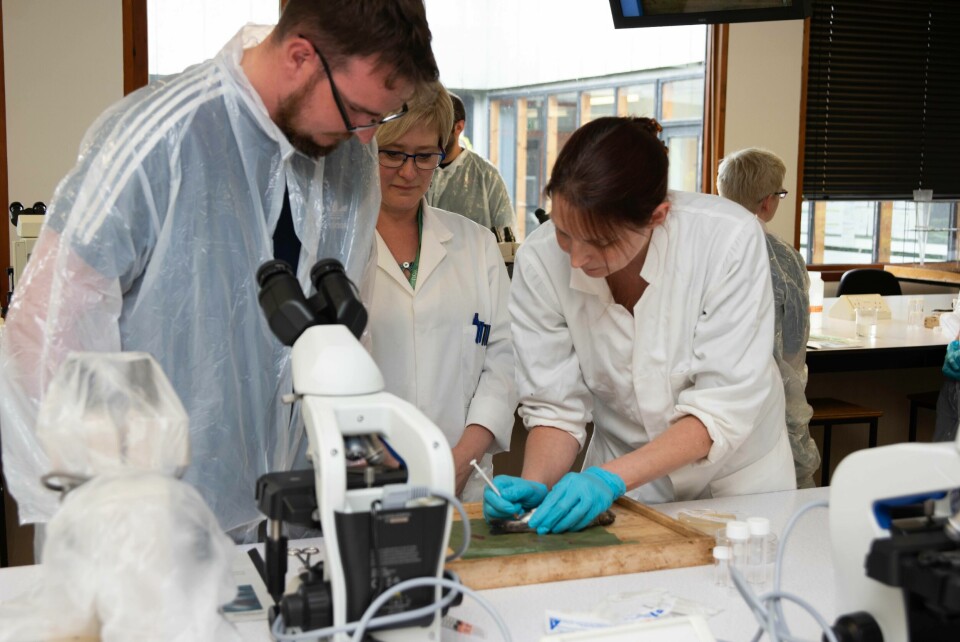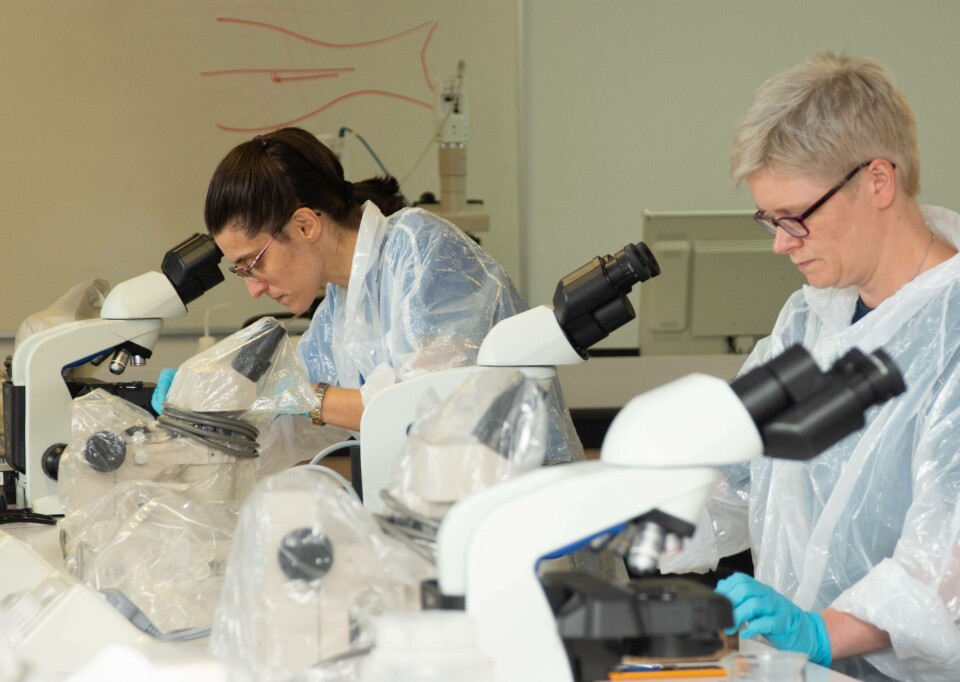
Stirling plans more short courses after debut success
A new short course in fish health and welfare by Stirling University’s Institute of Aquaculture (IoA) has been declared a success by organisers, who are now looking to develop more in-depth follow-on courses.

Alex Pargana, a member of the IoA’s main veterinarian team and co-ordinator of the course, said the reception that the continuing professional development (CPD) course had received was “amazing”.
“This whole process has happened very, very quickly,” said Pargana. “We decided to prepare this course, we announced it at the Aquaculture UK event at Aviemore in May, and we had a lot of people asking about it at our stand and pre-registering.”
The first course was held on June 20 and 21, and a second will take place on September 6 and 7.
Motivating feedback
“Our objective is to run this course on a regular basis, roughly every two months,” said Pargana.
“We prioritise smaller groups, so we will run this course with up to 12 people. We had a couple of last-minute call-offs with the first course, so we ran it with 10. It was great, considering it was the first and there’s always some teething issues to be sorted. We had very positive feedback, which is really motivating us.”
Pargana said the course was a core course designed to be relevant to a wide range of people working in or with aquaculture, including fish transport companies, pharmaceutical suppliers, regulatory agencies, feed suppliers and even insurers.
“It is tailored in a way that it suits health people who have already had vet training or pathology training and want to just to a refresher, or farm staff who want to catch up with the best practices and updated regulation issues and things like that, but also other sorts of professionals such as managerial personnel – people that are based in offices rather than on site but still want to have a better and deeper understanding of what fish health and welfare is all about,” he said.
The first course attracted people involved in salmon farming, but also some from halibut and cleaner fish farms, and people involved in aquarium facilities for keeping fish for research purposes at universities, and in pharmaceuticals.
The format is a departure for the IoA, which in recent years has largely concentrated on full-time students.
Theoretical and practical
“This is a very short format: two days, a combined set of theoretical classes and then lab-based practical with real fish and a hands-on approach to sampling and dissecting and things like that,” said Pargana.
He said the course was developed in response to demand from industry and because the IoA also recognised a need for such training.
“It’s only surprising that we haven’t launched this before,” said Pargana, who added that the IoA was now looking at more advanced follow-on courses.
“These will be short courses, one day or a maximum of two days if we need it, and these will be focusing more in-depth into more specific subjects.
Cleaner fish, RAS, water quality
“For instance – and it comes from the feedback we have had and the requests we’ve received from people – things like an advanced course in cleaner fish is in our objectives.
“We’ve been asked about recirculating aquaculture systems, that’s also one thing we’d be looking into providing. Anaesthesia and slaughter, water quality, freshwater-specific issues, there are plenty of ways to go, and for that we will work based on what we get from our participants and the companies that use these courses.
“These will be for more targeted audiences, whereas the core course is very wide scope.
“We will be announcing them in the short to medium term. If not later this year, I would like to have some advanced courses on offer for next year.”























































